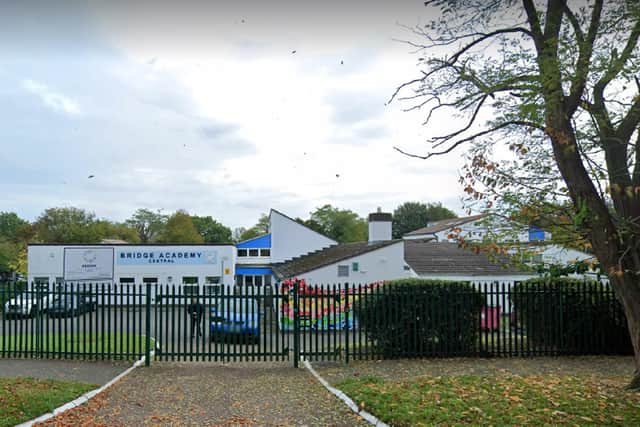Former maths teacher at Milton Keynes school found guilty of professional misconduct after ‘physically restraining pupil’
and live on Freeview channel 276
A maths teacher who was employed at Bridge Academy, part of the Stephenson (MK) Trust, Milton Keynes, has been found guilty of professional misconduct.
Mr Samuel Okai taught at the school from January 7, 2013 to October 19, 2020 and also undertook internal moderation for BTEC and other vocational qualifications. He had an unblemished record over a seven-year period at the school but on June 17, 2020, Mr Okai was involved in an incident where he physically restrained a pupil.
Advertisement
Advertisement
A professional conduct panel heard the incident between Mr Okai and a pupil took place in a classroom and was provided with CCTV footage which showed Mr Okai physically restrained the pupil who was asked to return a book as he was leaving the classroom.


The panel found Mr Okai: “Engaged in inappropriate physical contact ‘in that you took hold of or otherwise physically restrained Pupil A;
a) In circumstances where you had not attempted and/or employed deescalation techniques;
b) In circumstances where doing so was a disproportionate and/or unnecessary response to Pupil A’s behaviour.
Advertisement
Advertisement
The panel also found Mr Okai did not report the incident and that there was a public interest consideration in respect of the safeguarding and wellbeing of pupils. But the panel considered it was an isolated incident which did not justify banning Mr Okai from teaching.
While Mr Okai admitted allegations 1(a) and 1(b), he provided the panel with context as to why he had acted in the manner he did.
He described a challenging working environment on the basis that pupils attending the school had behavioural problems and could not be educated in a mainstream environment. While working at the school he had been subjected to physical abuse by pupils including being hit round the back of the head until his nose bled and being karate chopped in the neck, slapped round the face, punched in the temple and kicked in his private parts.
The panel’s findings concluded: “On the basis that Mr Okai had shown great insight into his misconduct and demonstrated how it would be avoided in the future, the panel was of the view that prohibiting Mr Okai would not produce any material change or serve any useful purpose.”
Advertisement
Advertisement
The panel also stated there was ‘public interest consideration in retaining Mr Okai in the profession, since no doubt had been cast on his abilities as an educator and, in the panel’s view, ‘he is able to make a valuable contribution to the profession’. The panel was satisfied this had been an isolated one-off incident which was out of character and took place at a time when Mr Okai was under extreme pressure both at the school and in his personal life, and was at the lower end of the scale of severity.
It was submitted that, save for this one incident, Mr Okai had an unblemished record while at the school.
Allegations that Mr Oaki’s conduct was dishonest and/or lacked integrity and that his behaviour towards Pupil A was in breach of the school’s policies with regards to Team Teach Techniques, were not proven.
Mr Oaki also denied an allegation he failed to report the incident because he had a BTEC meeting to attend.